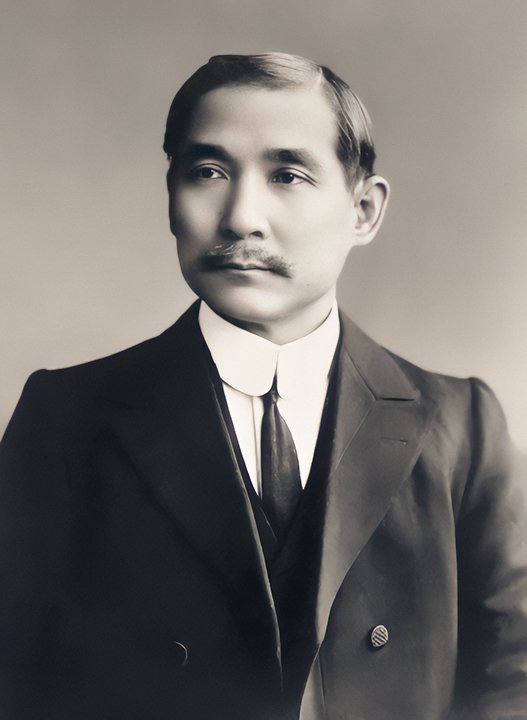
1905Aug, 20
Sun Yat-sen, Chinese revolutionary, forms the first chapter of T'ung Meng Hui, a union of all secret societies determined to bringing down the Manchus.
Sun Yat-sen(; born Sun Te-ming; 12 November 1866 – 12 March 1925), also known as Sun Chung-shan, Sun Yi-hsien, Sun Wen, Sun Yi-hsin, Suen Yat-sen and Sun Yixian, was a Chinese statesman, physician, and political philosopher, who served as the first provisional president of the Republic of China and the first leader of the Kuomintang (Nationalist Party of China). He is called the "Father of the Nation" in the Republic of China, and the "Forerunner of the Revolution" in the People's Republic of China for his instrumental role in the overthrow of the Qing dynasty during the Xinhai Revolution. Sun is unique among 20th-century Chinese leaders for being widely revered in both Mainland China and Taiwan.Sun is considered to be one of the greatest leaders of modern China, but his political life was one of constant struggle and frequent exile. After the success of the revolution in 1911, he quickly resigned as president of the newly founded Republic of China and relinquished it to Yuan Shikai. He soon went to exile in Japan for safety but returned to found a revolutionary government in the South as a challenge to the warlords who controlled much of the nation. In 1923, he invited representatives of the Communist International to Canton (Guangzhou) to re-organize his party and formed a brittle alliance with the Chinese Communist Party. He did not live to see his party unify the country under his successor, Chiang Kai-shek, in the Northern Expedition. He died in Peking (Beijing) of gallbladder cancer on 12 March 1925.Sun's chief legacy is his political philosophy known as the Three Principles of the People: Mínzú (民族主義, Mínzúzhǔyì) or nationalism (independence from foreign domination), Mínquán (民權主義, Mínquánzhǔyì) or "rights of the people" (sometimes translated as "democracy"), and Mínshēng (民生主義, Mínshēngzhǔyì) or people's livelihood (sometimes translated as "communitarianism" or "welfare").
Choose Another Date
Events on 1905
- 27May
Battle of Tsushima
Russo-Japanese War: The Battle of Tsushima begins. - 28May
Battle of Tsushima
Russo-Japanese War: The Battle of Tsushima ends with the destruction of the Russian Baltic Fleet by Admiral Tōgō Heihachirō and the Imperial Japanese Navy. - 26Sep
Special theory of relativity
Albert Einstein publishes his first paper on the special theory of relativity. - 26Oct
Norway
Sweden accepts the independence of Norway. - 30Oct
Nicholas II of Russia
Czar Nicholas II of Russia issues the October Manifesto, granting the Russian peoples basic civil liberties and the right to form a duma. This was October 17 in the Julian calendar.

 English
English  español
español  français
français  português
português  русский
русский  العربية
العربية  简体中文
简体中文